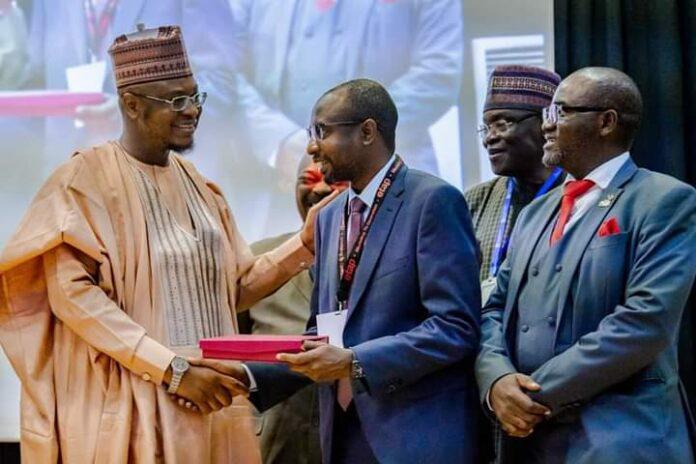By Kabir Abdulsalam
The evolution and the upsurge of blockchain – a ‘tsunami-like’ phenomenon as described by many tech experts – is gradually enveloping innovation with the force of progression.
Several terminologies begin to unravel in this chain. Tech enthusiasts kicked-off research on how to create a decentralized structure of data with inherent security qualities that will be based on the principles of cryptography to ensure trust in transactions through the participation of members across a distributed network.
Then, the term cryptocurrency, non-fungible tokens (NFTs), and the metaverse started taking over the digital world, with the new world of the internet called Web 3.0 is another fast-rising digital evolution where tech giants are focused.
Also Read: Nigeria Computer Society Congratulates NITDA On National Productivity Award
Renowned computer scientist, Gavin Wood coined the term “Web 3.0” in 2014 and laid out his vision for the future of the internet.
The phrase, also abbreviated as “Web3” has turned into a web trendy expression as of late with high-profile tech companies, including Twitter, Tesla, Microsoft, and Amazon discussing the significance of the term.
The Static Web (Web 1.0) was the first generation internet that offered limited access to the web – where users are to broadcast their information and only allowed others to search for information and read it.
Later, it was replaced with a social web called Web 2.0 in 2004 which made the internet far more interactive by using web tools like Javascript, HTML5, and CSS3 to build interactive web platforms such as YouTube, Twitter, and Facebook among others.
Web 3.0 is another chance for a new world of tech startups to find their way and lead the digital revolution. Many tech giants including Google, Microsoft, and Amazon have tapped into this revolution.
Recently, Google Cloud, a flagship of Google, announced that it is recruiting a team to build tools for developers working on web3 products and services.
The new group is to capitalise on opportunities presented by the growing interest in blockchain-based apps to get ahead of its public cloud rivals, Amazon’s AWS and Microsoft Azure, in another emerging technology area.
A statement released by Amit Zavery, a vice president at Google Cloud said: “While the world is still early in its embrace of web3, it is a market that is already demonstrating tremendous potential with many customers asking us to increase our support for web3 and crypto-related technologies.”

Web3 is the idea that the next generation of the internet will be built on distributed blockchain technology where users have more control over their information. This is often contrasted to Web 2.0, the era in which online data has become centralised and dominated by a handful of powerful players such as Amazon, Microsoft, and Google.
In Africa, the evolution of blockchain technology has interested many governments across the continent to explore blockchain-based solutions, creating Central Bank Digital Currencies (CBDCs) that are likely to develop a more informed approach to the Web3 economy along with policy frameworks in line with the needs of everyday users.
Though it took some time for Nigeria’s government to realise this tech trend, the Central Bank of Nigeria (CBN) which had previously criticized it, later launched the e-Naira in October 2021. Many other African counterparts like South Africa are also participating in this digital currency ‘Bank for International Settlements’ with a multi-CBDC experiment project in Durban.
Meanwhile, Morocco, Tunisia, Ghana, Kenya, Rwanda, Madagascar, Mauritius, and most recently, Uganda are all actively researching digital currencies backed by their respective central banks.
To legalize the new internet revolution, the Federal Ministry of Communications and Digital Economy, through the National Information Technology Development Agency (NITDA), has published a National Blockchain Adoption Strategy that recognizes blockchain technology in the country to attract huge foreign direct investments (FDI) for more robust economic regulations and enabling environment.
At a recent forum, the Minister, Prof. Isa Pantami, restated the use of emerging technologies as veritable tools on which Nigeria can capitalise in combating insecurity and enhancing economic development.
In that regard, the BBC reported that Nigeria ranked the third country globally with the highest bitcoin trading volumes last year, after the US and Russia.
Another report also confirmed that about 60 percent of Nigerian and African startups are deep into researching blockchain options. Notable among them include HouseAfrica, Nairaex, Bitkoin Afrika, Buycoins, and Ellcrys, to mention a few that are leveraging the latest blockchain technologies for real value.
The Nigerian government needs to act swiftly to stabilize its digital currency away from Web1 and from the biggest pain point of Web2 which was centralised and controlled nature of multimedia databases, that predominantly rested with big tech companies.
The world is moving to Web3, a characterized and great decentralized web using blockchain and crypto to create transparency that requires no permission from big tech to use data from their databases.
Built with the idea of creating an internet that satisfies everyone, peer-to-peer networks, user-controlled data, and monetisation act as building blocks for Web3 to attract various blockchain protocols, startups, investors, grant funders, and government policies.
Using the new internet, you can now enjoy a more personalised browsing experience that gives you control over your data and finances while creating an overall rich digital experience.
Web3 can open up an intra-African exchange economy, it can be used for purchases and transportation between African nations. It will assist Africans to generate more economic value in wider market.
While the evolution may take decades to complete, the possibilities are unlimited, and this is the time to get everyone rolling.
Kabir Abdulsalam writes from Wuye District Abuja
[email protected]









